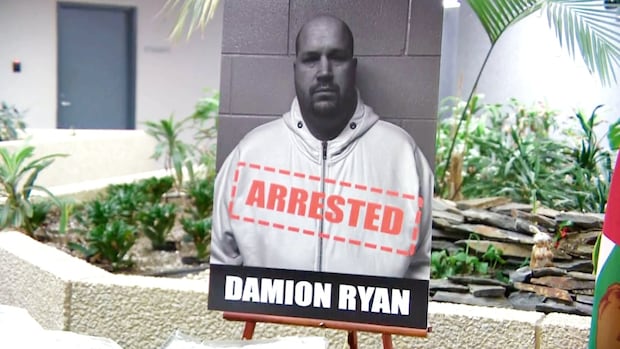The Ford government is taking its proposed bill to crack down on negligent and misbehaving municipal politicians on the road this summer with plans to have it in place before 2026 civic elections.
But critics say the new rules are “fatally flawed” and will be ineffective.
Committee hearings on Bill 9, dubbed the Municipal Accountability Act, began last week in London and Niagara Falls to gather feedback on the Progressive Conservative plan. It would see the process to handle misconduct standardized across all 444 municipalities in the province and give councils the ability to remove one of their peers from office.
Municipal Affairs Minister Rob Flack told the committee that the government is open to feedback, but aims to pass the bill in the fall. That would mean it would come into force ahead of 2026 municipal elections, he said.
“We all know and understand what’s at stake with this legislation,” Flack told the all-party committee last week. “We know that accountability is not optional, it’s essential.”
The mayor of Pickering and city council members are asking the province to legislate stricter sanctions for councillors after their colleague appeared on a podcast where the host labelled them pedophiles, Nazis and fascists. As CBC’s Chris Glover explains, the Doug Ford government confirmed a review of the Municipal Act is now underway.
PCs re-introduced bill to address misconduct in May
The government re-introduced the legislation in May after it died on the order paper when the snap election was called earlier this year. This is the third attempt by the PCs to introduce legislation aimed at addressing serious misconduct by municipal councillors.
They’re responding to years of requests from municipal politicians and staff who have asked for tools to deal with allegations of sexual harassment, discrimination and ethics abuses.
Flack said the current process is not uniform and gives councillors the ability only to suspend pay, even in the most serious of instances. It undermines the public’s view of fairness and accountability on municipal councils, he said.
“This current system, simply put, does not work as intended and has produced challenges right across Ontario,” he said.
The new bill would require a local integrity commissioner to investigate misconduct allegations. If that person believed a breach of the code of conduct warranted a politician’s removal, the case would be passed on to Ontario’s Integrity Commissioner for review.
If that watchdog also recommends removal, the case would be passed back to the local council for a decision within 30 days. A councillor could only be removed by a unanimous vote of all the council members who are not the subject of the complaint.
Bar is too high for removal of a misbehaving councillor, critics say
Municipal lawyer John Mascarin said leaving the final decision in the hands of politicians will ensure the law is never used. Leaving the final call to the courts would de-politicize the process and ensure fairness, he said.
“I think the bill is incredibly flawed, fatally flawed,” said Mascarin, who is a partner at the firm Aird and Berlis.
“Are you going to tell me that on a large council of 16, 20, 25 members … you’re not going to find one member that’s going to betray their good conscience and their fiduciary obligations?”

Liberal municipal affairs critic Stephen Blais has introduced three private members bills trying to give municipal integrity commissioners enhanced powers. Those bills would have allowed the watchdogs to refer the most egregious code of conduct violations to court. A judge would then determine if a politician should be removed from office and barred from running in subsequent elections.
Each time, the bills have stalled in Queen’s Park’s legislative process or been rejected by Premier Doug Ford’s government. Blais said he thinks the standard in this bill for removing a councillor is too high.
“I think the government has overshot the mark. I think it’s not just high, I think it’s kind of in outer space,” he said.
NDP municipal affairs critic Jeff Burch, who is also a former city councillor, said the government has acquiesced to years of demands for this legislation, but it’s made it ineffective.
“This bar is far too high,” he said. “Why should politicians, who should be held to a higher standard, have such a lower standard and be able to keep their jobs in situations that make other people feel unsafe?”
Municipalities want more tools for ‘progressive discipline’, AMO says
The president of the Association of Municipalities of Ontario says that group is happy government is moving ahead with the legislation. But Robin Jones, who is also the mayor Westport, Ont., says amendments would make it more effective. AMO previously advocated for cases involving potential ejection from council to head to the courts. Lowering the bar from all of council to a two-thirds majority vote for removal would address some concerns, she said.
“We think a super-majority should be enough,” she said. “We understand that it may need to be more than a simple majority.”
Jones said councils also want more middle-ground built into the legislation to give them options for other sanctions. Pay suspension isn’t much of a motivator on many smaller councils where salaries are small for what’s considered part-time work. The new bill would add removal from council as the next, and only other, penalty available to councils.
“We really do think that there should be sort of a progressive discipline opportunity,” she said.
At the hearings, Flack defended the government’s position on the full majority of a council being required to remove a peer. The PCs want to avoid the process being “weaponized,” he said.
“By the time you get to a vote there should be little doubt that removal or disqualification, if it’s being recommended, be done,” he said.
A spokesperson for Flack said in a statement that a high bar is required for any vote to remove a sitting politician.
“Removal from office is a serious measure, reserved for the most extreme code of conduct violations, and safeguarded by a high threshold and thorough review to ensure it is never taken lightly,” Alexandra Sanita said.






